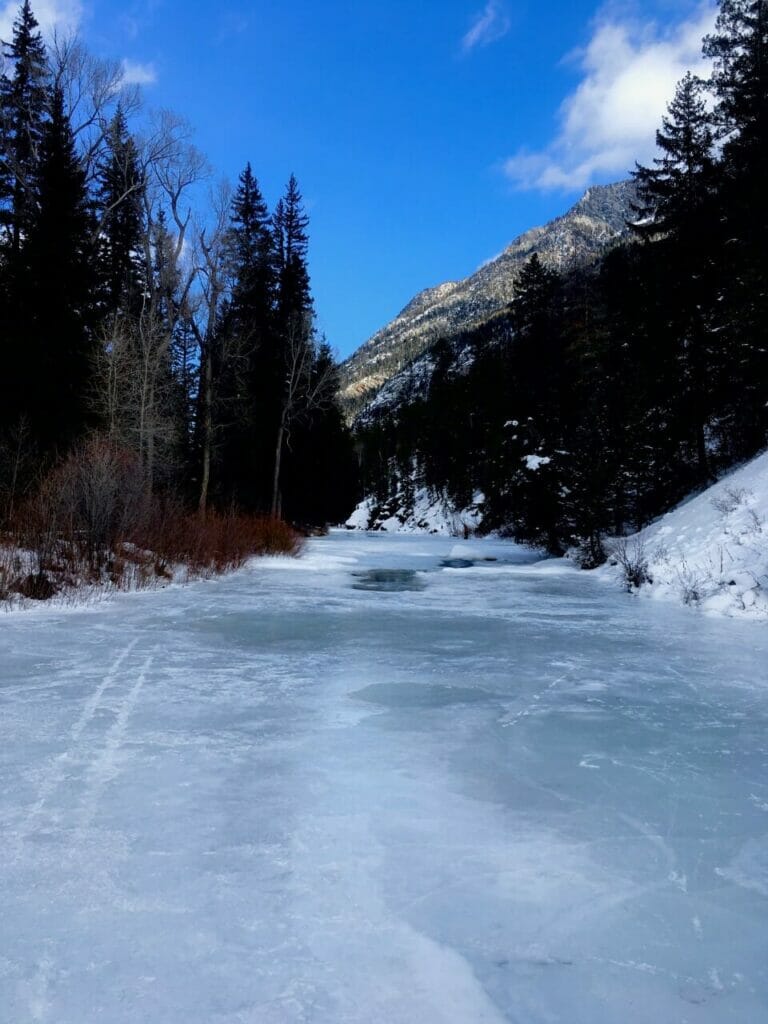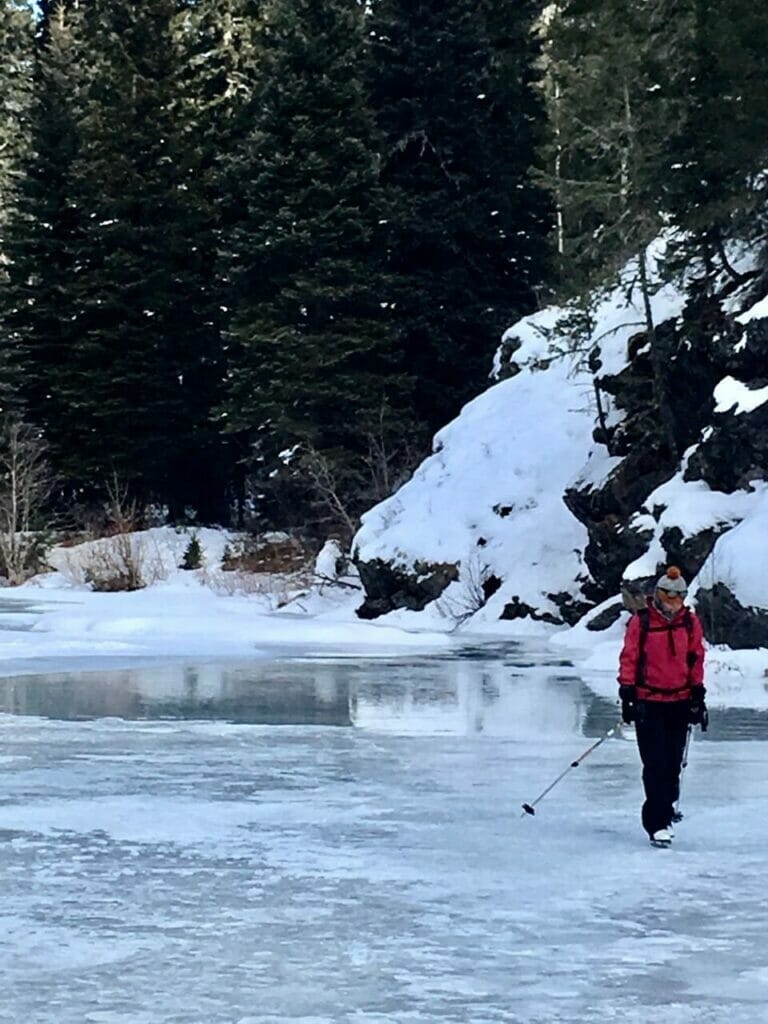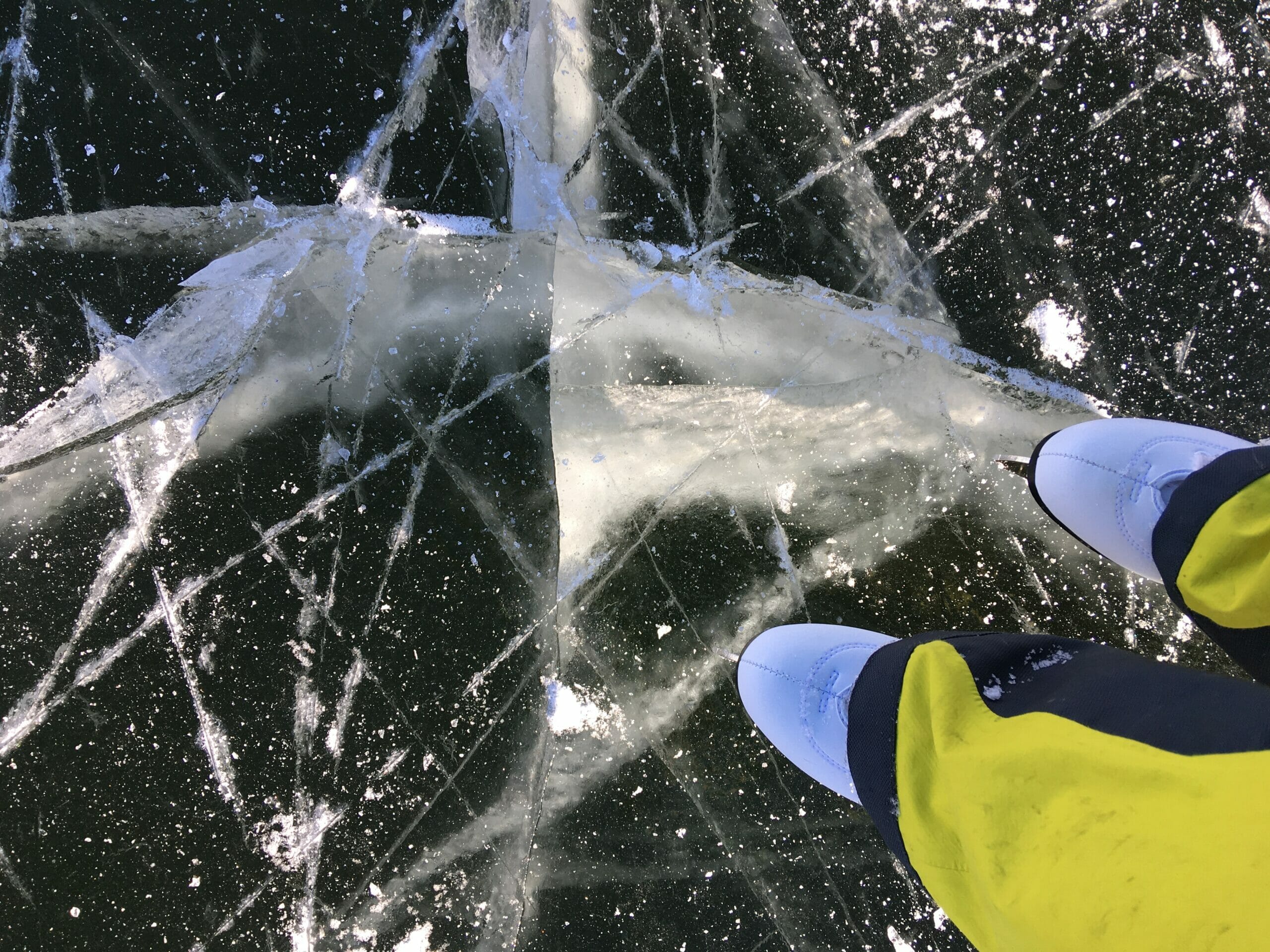I get lots of questions about trout, but many of them come this time of year. The sunlight shows itself for short periods, and the nights are long and cold. Seeing ice on riverbanks and entire lakes frozen over, people begin to think about what happens to the species that swim under their surfaces.
What do trout do in the winter?
What do they eat?
How do they survive?
I certainly don’t have answers to all the questions (though I’m guessing folks on Trout Unlimited’s Science Team do), but I’ve been contemplating a few questions myself lately.
During my recent forays to find ice on which to skate, I’ve cross country skied deep into the wilderness to skate on a frozen river. We’ve taken shovels to high country lakes to clear off the snow to push around a puck. We even skated a stretch of the ditch behind our house with occasional glides breaking through the surface ice.

What I’ve thought about during these expeditions is: How obnoxious do the trout think all this noise is?
I know trout have inner ears called otoliths that help them hear nearly what we hear, at least we think. Otoliths are made from mostly calcium carbonate and they grow in layers accurately revealing the age of the fish (determined only once that fish is no longer alive). They also contain a chemical signature of trace elements from their home waters that tell a story of their life history.
But I also know trout can “feel” sound. Thanks to their lateral lines, trout can sense sound vibrations, which helps them find food, avoid obstacles and escape predators.

Given this information, I come away with a sense of dread over the incredible noise my ice skate blades make on the ice above their heads. More questions arise for me. Do the trout hear it coming for far enough off that they can move away from the screech? What if they can’t escape due to the ice being too thick? Do they behave erratically, allowing their predators to more easily munch them?
Well, until sound science (Ha! See what I did there?) allows us to have answers, I think I’ll continue my ice-skating missions. Until then, I’ll enjoy watching the snowflakes finally falling again covering up the ice and knowing the trout finally get some peaceful, quiet days.



